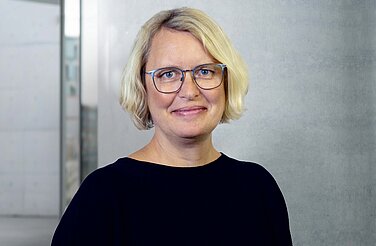-
Discussion Paper
Setting the course for rail policy
(in German)
-
Event
Future issues of rail policy
(in German)
Setting the course for sustainable rail transport
Agora Verkehrswende publishes recommendations on rail policy / Financing of rail infrastructure via special fund still to be clarified / Federal government needs ownership strategy for Deutsche Bahn and climate criteria in the Federal Transport Infrastructure Plan
9 April 2025. Think tank Agora Verkehrswende has published recommendations for the new German federal government on the future of rail policy. The proposed measures aim to enable the country’s rail service to contribute to a climate-neutral Germany. Adequate financing of investments in the rail network is essential to achieve this. Revenue from truck tolls should continue to flow into the rail network.
The think tank also recommends steering Deutsche Bahn via an ownership strategy with binding targets for the further development of the rail network and aligning federal transport infrastructure planning with climate neutrality.
Wiebke Zimmer, deputy director of Agora Verkehrswende, said that ”The new federal government can set the course for climate-neutral transport in 2045. Rail transport plays a central role in this. More money is available through the special infrastructure fund. However, a long-term strategy is also needed to ensure that the funds are spent in a targeted manner to strengthen Germany as a business location and to protect the climate. Priority should be given to the renovation and modernisation of the rail network, followed by expansion of the Germany-wide integrated timetable and the maintenance of roads and bridges. The federal government should, however, put the construction and expansion of roads on hold.”
Develop a target for climate neutrality by 2045 and prioritise modernisation
Prior to drafting the study ‘Setting the course for rail policy’, Agora Verkehrswende discussed the issue with experts from the rail sector and drew up recommendations. According to the study, the federal government should first lay the foundations for sustainable investment in transport infrastructure by ensuring adequate financing. To this end, the planned budgetary resources should be supplemented by an appropriately high share from the new special infrastructure fund. In addition, the debt brake should be reformed to create a permanently viable financing structure for the transport transition. Toll revenues must also make a reliable contribution to financing the railways.
According to the think tank, assumptions for a climate-neutral transport system in 2045 should be developed for federal transport infrastructure planning and investments should be aligned accordingly. With such a target, many rail projects would be prioritised over road construction. Planned infrastructure projects that are not yet under construction and are incompatible with or run counter to the target vision are to be scrapped.
Even though there has been much talk of network expansion in politics in recent years, a decade of renovation has de facto begun. In view of the scarce construction resources and the major challenges entailed in improving rail services, priorities must be set. This means focusing planning, construction and financial resources on the renovation and modernisation of the main rail network, followed by the expansion of the network for the Germany-wide integrated timetable. Line reactivations should only be pursued in a few cases where the cost-benefit ratio is particularly favourable. Small and medium-sized centres without rail connections should instead be served by express bus services.
Align passenger transport with the Germany-wide integrated timetable and strengthen rail freight transport
To better position rail for a climate-neutral transport system, Agora Verkehrswende recommends stronger federal control of Deutsche Bahn. The federal government should develop an ownership strategy for this purpose and make it publicly available. This strategy should require Deutsche Bahn to further develop the German rail network for the so-called Germany-wide integrated timetable, which will not be determined by the available rail infrastructure. Instead, the infrastructure will be expanded on the basis of an optimised target timetable. The federal government should define concrete stages for its expansion and make these binding. At the same time, targets for basic transport services, climate protection and modal shift are also necessary for the railway subsidiaries.
According to Elisabeth le Claire, project manager at Agora Verkehrswende, ”We now need an ownership strategy and more transparency about what the federal government plans to do with its railway companies. With a clear vision for the rail network and coherent criteria for the strategic orientation of the railway group and its subsidiaries, reliability, economic efficiency and climate protection can be better achieved.”
To strengthen rail freight transport, Agora Verkehrswende recommends, among other things, reforming the sharp rise in track access charges. The federal government should also promote combined transport by rail, ship and truck by expanding and building new transhipment facilities at seaports and inland. The think tank sees the promotion of single-wagon transport as a transitional solution conducive to a more efficient system. Although costly, it is currently indispensable for certain industries, such as steel and chemicals. To improve the system, the federal government should press ahead with the introduction of digital automatic couplings.
Information for editorial offices
The discussion paper ‘Setting the course for rail policy’ is available (in German) for free download here. In addition to Agora Verkehrswende's recommendations for action, it also compiles various assessments from expert circles. Agora Verkehrswende conducted the interviews with the experts between July 2024 and March 2025.
Agora Verkehrswende presented the results on 29 April 2025 at an online event and discussed them with experts. The video of the event (in German) can be viewed here.
About Agora Verkehrswende
Agora Verkehrswende is a Berlin-based think tank that seeks to promote climate-friendly mobility. Non-partisan and non-profit, it works together with key stakeholders in the fields of politics, business, academia and civil society to decarbonise the transport system. To this end, the think-tank team develops evidence-based policy strategies and recommendations. Agora Verkehrswende was initiated in 2016 by Stiftung Mercator and the European Climate Foundation. Both of these foundations are shareholders.

